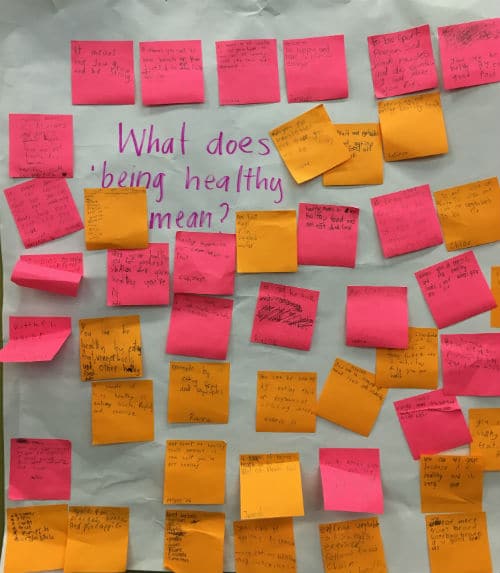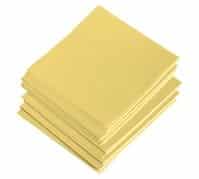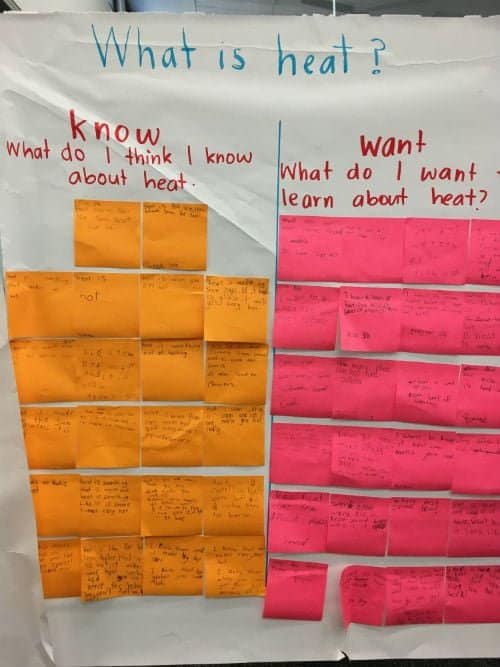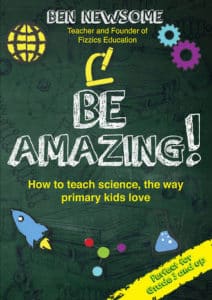A powerful tool in students hands
Nothing could be simpler than having students sit down and create a mind map of their ideas prior to a science lesson or project-based learning activity. Why not take this classic thought process a step further and have students share their ideas simply using Post-It notes? It’s a simple concept but quite powerful as a classroom survey or collaboration tool, as students can quickly share their ideas around what they think they know and what they would like to know in a way that works for them. Sounds too simple to warrant writing about? Well, simplicity is often the key to making things happen and you might be surprised how this is used outside of schooling.
- During our first meeting at the PWC 21st Century Minds Accelerator program, we spent time writing out our ideas for our projects on colour-coded post-it notes so that we could arrange our thoughts quickly in group discussions. The simple use of Post-It notes allowed us to move our thoughts around quickly and get rid of ideas that were deemed not to work, thereby keeping the mind map structure, however, making it more adjustable and dynamic.
- At the PWC meetings, we also used Post-It notes to give feedback on presentations, in terms of what was good about the presentation and what could be improved. People could quickly rove around the room to place their comments anonymously so that projects could get the feedback they need to move forward.
So, given that using such a simple tool is more than enough for a global company like PWC I’d imagine that it’d be good enough for your students too! I recommend considering getting a stack of different coloured Post-It notes and some large sheets of paper in preparation for student collaboration. From there it’s just a matter of setting up some learning scenarios plus ground rules of student conduct and then you’re set for trialling this as yet another tool for teaching your students. Below are just a couple of examples where we’ve seen Post-It notes being used in a science classroom setting to great effect:
Brainstorming before a unit of work
Here, Year 3 students at Good Shepard Primary School had brainstormed what they thought they knew about heat and also what they’d like to know. Students were quickly able to contribute to the topic plus they could find out what other student’s understanding of the topic was too. This way the classroom teacher was able to tailor to the classes needs more effectively.
Colour coding Post-It notes gives direction and focus to students
Creating a student knowledge centre
Here, the same students collaborated on what they thought contributed to being healthy. A board like this would act as a stimulus for further discussion and research

A quick student sharing session can collate a lot of results
Sure there are a variety of apps that could serve the same purpose (eg. Bubbl or Mind Vector), but for sheer simplicity, the good old Post-It note can be put to good use without the reliance on digital hardware. Here are some other things could you do with Post-It notes in your school:
- Students use Post-It notes to create mind maps of their next science fair project.
- Your staff meetings could set up a variety of blank sheets of paper with titles prompting contributions from teachers (eg. incursions to have, apps to try out, favourite websites and more).
- Students use Post-It notes to create life cycles, water cycles, energy cycles and more. Each group could then mix up the order and then swap to another group to fix it up the last groups mess.
- Continuing with the theme of biology, why not use post-it notes to create an ever-expanding food web. As you introduce more organisms the complexity can be managed with some quick re-arranging.
What would you do with Post-It notes in your classroom? It’d be great to hear your ideas!
NEW Primary science teaching book!
“Be Amazing! How to teach science, the way primary kids love”





























Comments